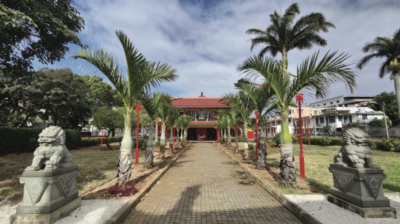Gender Equitable and Transformative Social Policy for Post-COVID-19 Africa (GETSPA)
The COVID-19 pandemic and governments responses to it in the form of lock downs and restricted public activities have exposed long-standing hierarchies of inequalities – gender, spatial and class-based, with their various intersections across countries in the African continent. At the same time, it has increasingly revealed the central importance of social policies in improving the welfare of societies. These manifestations offered the space for deep reflections, which brought about the Gender Equitable and Transformative Social Policy for Post-COVID Africa Project. The central objectives of the project are two-fold. One, to make social policies that can catalyze and support agrarian transitions and structural transformation in informal non-industrialized economies. Two, to make social policies that address longstanding gender as well as class and spatial inequalities and their intersections.
The project, which will reach its goal mainly through Research, Documentation, Capacity Building, Policy Engagement, Constituency building, and Networking has the following aims and objectives:
- Map and Understand the current social policy landscape and its elements, opportunities, and challenges
- Understand the interface between economic and social policies.
- Identify positive approaches to economic and social policy in Africa and the global South, and explaining why and how they work, and their potential for replicability
- Design a framework for a reorientation of social and economic policy
- Grow a new generation of dedicated researchers of social policy (post-docs; and researchers; mixed generation)
- Capacitate constituencies to struggle for change
- Engage with policy makers and advocate for change
- Build a repository and documentation for alternative approaches to social policy
The project has identified ten country clusters based on contiguity and shared characteristics- social systems and colonial legacy and linguistic affinity as well as policy convergences within the framework of the Regional Economic Communities (RECs). Among the countries represented are Least Developed Countries (LDCs); Lower Middle Income and Middle Income; Regional spread; and differences in social development; inequality and social policy innovations. Cluster IX are the Portuguese speaking countries: Angola, Mozambique, Cape Verde, and Guinea Bissau


